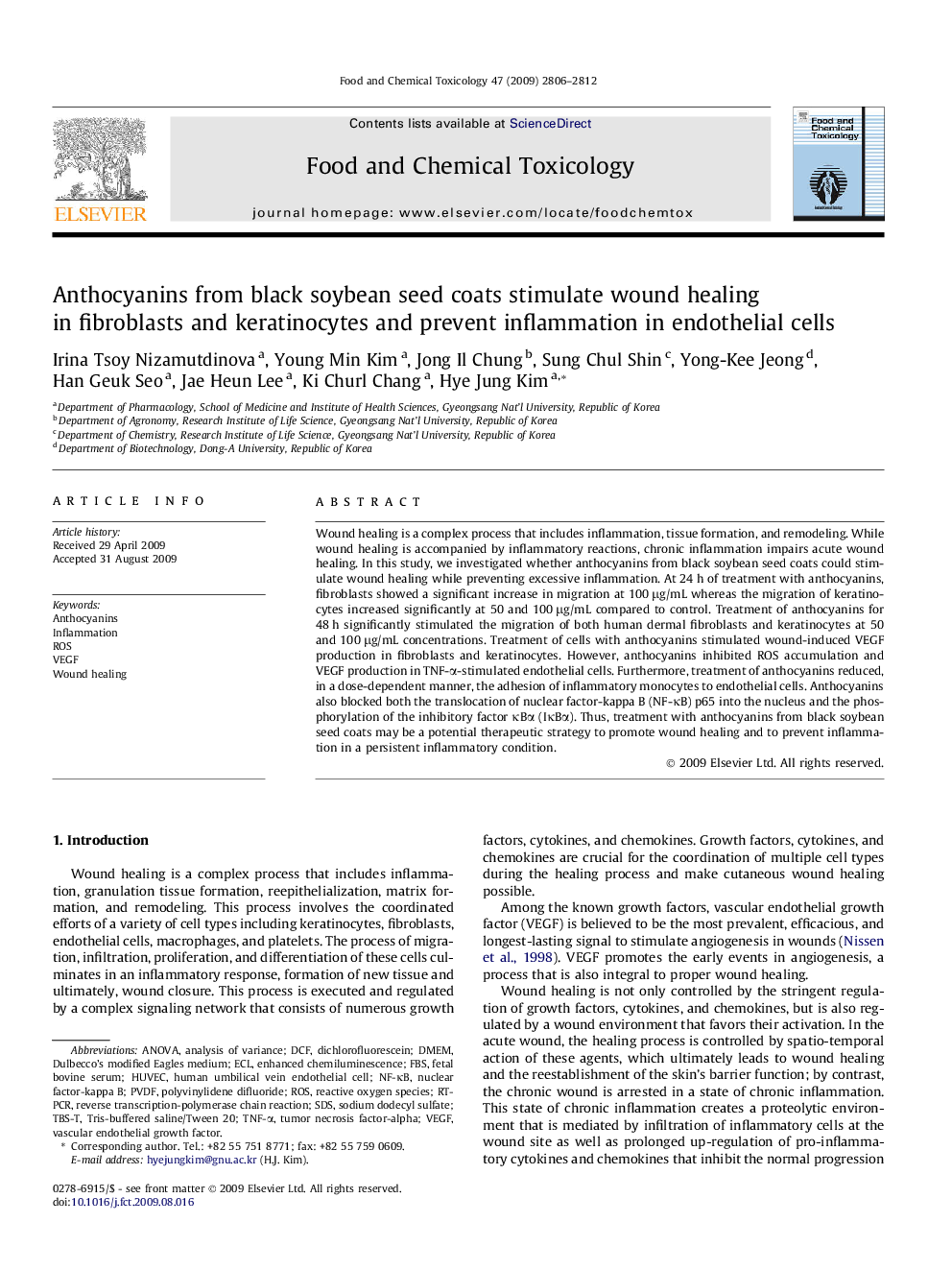| Article ID | Journal | Published Year | Pages | File Type |
|---|---|---|---|---|
| 2586400 | Food and Chemical Toxicology | 2009 | 7 Pages |
Wound healing is a complex process that includes inflammation, tissue formation, and remodeling. While wound healing is accompanied by inflammatory reactions, chronic inflammation impairs acute wound healing. In this study, we investigated whether anthocyanins from black soybean seed coats could stimulate wound healing while preventing excessive inflammation. At 24 h of treatment with anthocyanins, fibroblasts showed a significant increase in migration at 100 μg/mL whereas the migration of keratinocytes increased significantly at 50 and 100 μg/mL compared to control. Treatment of anthocyanins for 48 h significantly stimulated the migration of both human dermal fibroblasts and keratinocytes at 50 and 100 μg/mL concentrations. Treatment of cells with anthocyanins stimulated wound-induced VEGF production in fibroblasts and keratinocytes. However, anthocyanins inhibited ROS accumulation and VEGF production in TNF-α-stimulated endothelial cells. Furthermore, treatment of anthocyanins reduced, in a dose-dependent manner, the adhesion of inflammatory monocytes to endothelial cells. Anthocyanins also blocked both the translocation of nuclear factor-kappa B (NF-κB) p65 into the nucleus and the phosphorylation of the inhibitory factor κBα (IκBα). Thus, treatment with anthocyanins from black soybean seed coats may be a potential therapeutic strategy to promote wound healing and to prevent inflammation in a persistent inflammatory condition.
